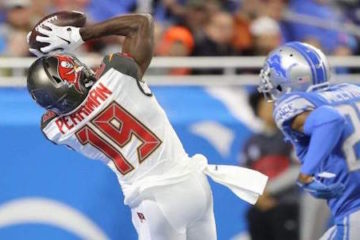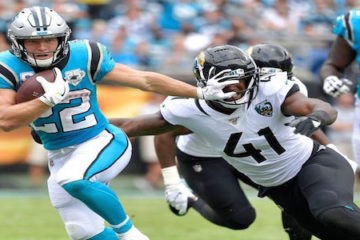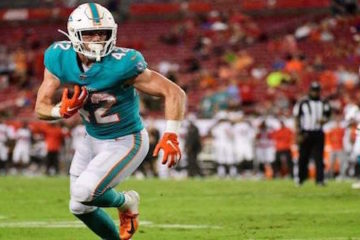2012 Fantasy Baseball: The Supreme Court Of Fantasy Judgment
ON PETITION FOR WRIT OF CERTIORARI FROM
THE HOKIEBALL FANTASY BASEBALL LEAGUE
Decided February 7, 2012
Cite as 4 F.J. 13 (February 2012)
Factual BackgroundA fantasy baseball league called the Hokieball Fantasy Baseball League (hereinafter referred to as “Roto league” or “HFBL”) is comprised of 12 teams and has been in existence for over a decade. The HFBL, hosted on CBSSports.com, is a head-to-head roto league that utilizes a snake format for its annual draft. It is a mixed AL/NL keeper league where each team may keep a maximum of five (5) players which count for that team’s first five draft picks. Each team is also permitted to keep one (1) player who entered the previous season as an eligible rookie or minor league player (less than 130 at bats or 50 innings pitched). This rookie keeper counts as that team’s 25th round pick.
Lineups are set daily and each team may make an unlimited number of daily rosters and add/drops without any transaction charges. Of the twelve teams in the league, the top four teams play in a playoff during the final two weeks of the season. At the conclusion of the regular season, rosters of the teams that did not make the playoffs are frozen. However, playoff teams are still permitted to make transactions as normally done during the regular season.
Due to the 2011 MLB schedule concluding on a Wednesday, the HFBL championship week took place over a ten (10) day period as opposed to the standard seven (7). As a result, almost every starting pitcher made two starts during this period. The eventual winner of the league, Johnny Bench’s Baseball Bunch, aggressively rotated his pitching staff by adding free agent pitchers with advantageous daily matchups. In response to making these additions, he dropped players who were unlikely to contribute during that scoring period, including Jason Heyward (OF-ATL), Brett Lawrie (3B-TOR), and Matt Moore (SP-TB).
The HFBL commissioner is also the team owner of Yuniesky Betancourt’s Revenge and was playing in the 3rd place consolation game during the championship week. Taking advantage of his ability to still make roster transactions, he acquired Heyward, Lawrie and Moore. He also added Paul Goldschmidt (1B-ARZ), Jason Kipnis (2B-CLE), Mike Minor (SP-ATL), Allen Craig (OF-STL), and Jordan Zimmermann (SP-WAS).
The Court was not provided with a copy of any written rules or constitution. However, as per the commissioner, the ability for playoff teams to still make transactions during the playoffs has existed since the inception of the league.
Several non-playoff teams have collectively complained that they were not afforded an opportunity to add any of the players dropped during the playoffs.
Issue Presented(1) Should the HFBL commissioner be entitled to keep any of the players he added during the 2011 playoffs?
DecisionThe Supreme Court of Fantasy Judgment typically favors individual fantasy sports participants and teams’ ability to make moves, transactions, and trades. People pay money participate in fantasy leagues, and generally they should be afforded the freedom to manage their team accordingly. Whether success is bred from that individual’s decision-making is purely left to some skill, luck, dedication, and savviness. See 4 Ponies v. Carson City Cocks, 3 F.J. 13 (May 2011).
Here, the rules regarding transactions during the playoffs have been well-established for over a decade since the league was created. However, for the first time, league members are challenging the ability of a playoff team to acquire talent without affording non-playoff teams with the opportunity to do the same. Part of the concern on behalf of the league commissioner is based on the fact that he was the beneficiary of the aforementioned free agent acquisitions.
This concern is well-founded because league commissioners are constantly under more scrutiny than the other members of the league simply because of the power and authority that is granted with such a position. As such, league commissioners should be cognizant of the perception of whatever decisions they make because they will be analyzed under a very thick microscope. See America’s Team v. The 1987 Denver Broncos are Cartman’s Father, 3 F.J. 51, 53 (July 2011). When a league commissioner ignores complaints or differences of opinion from a majority of the league members, it is likely he is not considering what is best for the league in general. See id (holding that a league commissioner’s credibility is endangered when he steadfastly refuses to consider logical and meritorious complaints).
This scenario begs the question of whether the prejudicial nature of the commissioner benefiting from an established rule that was legally applied outweighs the probative value of the rule itself. As important as it is to follow the language of the league’s rules, it is equally as important to understand the theory and rationale that exist behind each rule. See A New Hope v. On the Juice, 1 F.J. 4, 7 (September 2009). The HFBL implemented these rules regarding transactions because it did not want non-playoff contenders affecting the playoffs by acquiring players that the contenders may want, or by releasing players that may be picked up which could affect playoff outcomes. Similarly, the HFBL did not want to place limitations on the playoff teams’ ability to modify and amend their lineups as they did during the regular season. The intent behind this rule is sensible and the Court sees no reason to question it. When the rule was created, it was meant to apply to all teams equally, including the commissioner. League commissioners are entitled to manage their team to the best of their ability in an effort to win. See A-Holes & Pujols v. Mad Cow Disease, 3 F.J. 44, 46 (June 2011). To his credit, the commissioner has indicated he is willing to relinquish the players he acquired in the best interests of the league. However, the Court does not believe that is the appropriate remedy.
The scope of the Court’s authority is to govern over disputes that arise within a fantasy sports league. See Silveramo v. Nation, 2 F.J. 38, 41 (October 2010). The Court will evaluate the objective merits of each case to ensure the integrity of the league is maintained. See Victoria’s Secret v. C-Train, 2 F.J. 32, 35 (October 2010). Without evidence or testimony of foul play or collusion, the Court presumes that all parties adhere to the unwritten and generally accepted code of conduct within the fantasy sports industry that is premised on good faith and fair dealings. See John Doe v. Richard Roe, 3 F.J. 197, 199 (October 2011); Going, Going, Gonzalez v. Fantasy Baseball League, 1 F.J. 29, 30 (May 2010). That appears to be the case here.
There is no indication that there are any exceptions to the HFBL’s rules regarding playoff transactions. The commissioner did not do anything that violated the rules of the league when he acquired free agents that were dropped by the eventual winner of the league. The appellants have argued that the commissioner was playing for 3rd place and had no chance of winning the championship. While that is true, the commissioner was one of the four playoff teams who were entitled to make transactions during the two-week playoffs.
The Court recommends that all rules be enforced consistently. If an exception is made for some reason, it should be explained thoroughly why such an exception to the rules exist. See Machine v. Fantasy Football League Commissioner, 2 F.J. 1, 3 (September 2010). Barring extenuating circumstances, league commissioners should never change the established rules or procedures of a league in mid-season. See Winners v. Seven Shades of Shite, 3 F.J. 97, 104 (July 2011). Here, the Court does not see any reason to deviate from the rules in this case.
Based on the foregoing, the Court upholds the HFBL commissioner’s transactions because they complied with the existing rules of the league. However, if the commissioner is concerned about the impact of this rule going forward, he should amend the league rules for 2012 with respect to transactions made during the playoffs.
IT IS SO ORDERED.Be sure to follow FantasyJudgement.com on Twitter @FantasyJudgment
Remember to check out our 2012 Fantasy Baseball Draft Guide, with Ranks, Auction Values, Expert Mock Draft and tons of articles. Click here to learn more or purchase.






